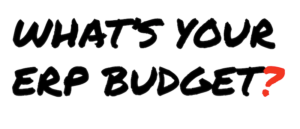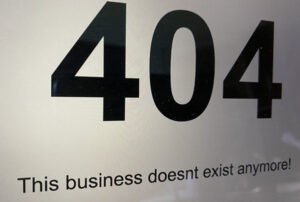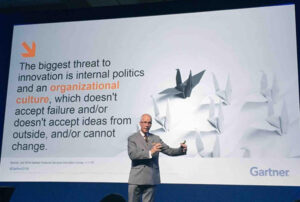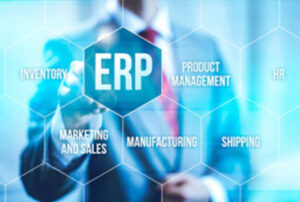BLOG
 Legacy enterprise software, which is typically older and less adaptable, will rely on separate layers of AI tools from third-party vendors to offer such advanced features. Taking a closer look at this enables us to examine what the key considerations and implications are in a system design environment.
Legacy enterprise software, which is typically older and less adaptable, will rely on separate layers of AI tools from third-party vendors to offer such advanced features. Taking a closer look at this enables us to examine what the key considerations and implications are in a system design environment.
Reasons Why It Might Be Valid:
- Cost-Effectiveness: Completely revamping legacy software built over many years can be expensive and time-consuming. Integrating AI tools as a separate application layer can be a quicker and more affordable way to add new AI functionalities.
- Flexibility and Innovation: Third-party (add-on) AI companies are constantly innovating. This allows legacy software to access the latest advancements without needing in-house AI development functions. In some instances it may be possible to easily partner for customizations with these firms too.
- Focus on Core Functionality: Legacy software vendors can continue to dedicate their resources to maintaining the core functionality of their product while relying on external AI expertise.
Points to consider when adding an AI layer to your legacy environment:
- Integration Challenges: Integrating a separate AI layer can be complex and lead to compatibility issues. Data exchange between the legacy system and the AI tool might be cumbersome.
- Security Concerns: Introducing a third-party tool creates new security and data vulnerabilities. Sensitive data might need to be shared with the AI provider, raising concerns.
- Limited Customization: Off-the-shelf AI tools might not be perfectly tailored to the specific needs of the legacy software and its users.
The idea of a third-party AI layer for legacy software has merit. It offers a cost-effective and fast way to add advanced features. However, successful implementation requires careful consideration of integration challenges, security risks, and the need for customization.
The future might involve a mix of approaches where some vendors might build AI capabilities in-house, while others rely on third-party layers. A hybrid model may involve strategic partnerships to build a custom AI tool layer as a service.
Finding AI add-on solutions that actually work for your environment and needs will be the challenging part here. This is an area where ERP Services can perhaps help leveraging our AI for business expertise.
If you are interested in finding out more about how AI can benefit your legacy enterprise solution environment please call 0770415387 or email us at info@erpservices.lk

The travel industry is booming, and boutique hotels are capturing the hearts (and wallets) of discerning tourists. These unique locations offer a personalized and luxurious experience that larger chains simply can’t replicate. But in a crowded marketplace, how can boutique hotels stand out and attract new guests? The answer leans more towards leveraging AI technologies.
AI is a powerful tool that can transform how boutique hotels approach guest experiences, marketing strategies, and operations. Here’s how:
- Hyper-Personalized Recommendations:
AI-powered chatbots can act as virtual concierges, greeting guests and recommending activities based on their preferences. These activities can be curated from locally screened and approved suppliers you already know or from your own set of services you typically offer guests. Imagine a guest mentioning a love for local art. The AI can suggest nearby galleries, walking tours with an artistic focus, or even curate a custom welcome amenity basket featuring local crafts. This level of personalization creates a far more memorable stay and fosters guest loyalty without the need to have high cost staff to attend to this function.
- Dynamic Pricing for Boutique Advantage:
Boutique hotels often lack the resources for complex revenue management. AI can analyze market trends, competitor pricing, and guest booking behavior to set optimal room rates. This ensures boutique hotels don’t undervalue their unique offerings while staying competitive especially during peak periods.
- Targeted Marketing on a Budget:
Large hotel chains have massive marketing budgets. AI can help boutique hotels compete by analyzing guest data to identify target audiences and tailor content and marketing campaigns. Social media platforms leverage AI to deliver hyper-targeted ads, ensuring your hotel reaches the right guest for a fraction of the cost of traditional marketing.
- Building Guest Relationships Before They Arrive:
AI chatbots can answer pre-booking questions 24/7, eliminating frustration from non-responsive agents and providing instant service. They can also gather guest preferences during the booking process, allowing staff to personalize the room or recommend local experiences beforehand. This proactive approach fosters a sense of connection even before the guest sets foot in the hotel.
- Amplifying the Power of Reviews:
AI can analyze guest reviews to identify trends and areas for improvement preferably before google or Tripadvisor can! It can also automate positive review responses, thanking guests and showcasing the best aspects of your hotel. This task alone can save significant costs and efforts by helping properties focus on what is important.
- Do more with less:
Boutique hotels run with lean teams and higher cost resources typically. This means that they need to ensure their operations are efficiently run. AI can help identify opportunities to save costs perhaps in purchasing looking at historic pricing data or AI agent powered service delivery to help the hotel run better with less resources.
The Human Touch with a Tech Boost
AI cannot replace the human touch as travel is still a highly experiential service. Guests still crave genuine interaction and experiences that can’t (yet) be replicated by AI. The ideal scenario is for AI to empower staff much like a copilot, allowing them to focus on what they do best: providing exceptional in-person hospitality!
Boutique hotels that embrace AI are poised to thrive in the competitive tourism landscape. By leveraging AI’s power to personalize guest experiences, optimize marketing strategies, and build stronger relationships, boutique hotels can stand out from the crowd.
If you are interested in finding out more about how AI can benefit your boutique tourism property please call 0770415387 or email us at info@erpservices.lk

Artificial Intelligence (AI) / machine learning can impact ERP (Enterprise Resource Planning) systems in several ways, including the following:
Improved automation: AI can be used to automate routine tasks within ERP systems, such as data entry, processing, and analysis. Beyond paper, IOT systems leveraging computer vision can help spot errors or floor issues giving a very reliable form of monitoring and quality control. This can save time and reduce errors, improving the overall efficiency of the system and operation.
Enhanced decision-making: AI algorithms can be used to analyze data within ERP systems to provide insights and recommendations to decision-makers. This departs from traditional report creation requirements allowing for query based question and answer and resulting automated report generation. This can empower many managers and help organizations make more informed decisions and optimize their operations at many levels without being restricted just to senior management.
Predictive maintenance: AI can be used to analyze data from ERP systems to predict when maintenance will be required for equipment, allowing organizations to plan and perform maintenance proactively, reducing downtime and maintenance costs. IOT connectivity can plan for servicing by informing the authorized services parties to plan for needs thereby reducing costs of internal maintenance staff.
Supply chain optimization: AI can be used to analyze data from ERP systems to optimize the supply chain, including inventory management, demand forecasting, and logistics planning. Furthermore, AI can examine large amounts of external risk data and help inform of potential supply chain risks and assist in planning for alternatives. This can improve the efficiency of the supply chain and reduce costs and risks.
Increased Personalization: AI can be used to personalize the user experience within ERP systems by learning the way a user engages with the system, thus tailoring the system to the individual user’s needs and preferences over time.
Overall, AI and machine learning can provide significant benefits to ERP systems, improving efficiency, decision-making, and overall performance. AI will also increase the value of an ERP investment as it learns over time further improving ROI. However, it’s important to ensure that the implementation of AI is carefully planned and executed to avoid potential pitfalls. AI should be considered as an add-on layer to available data sets and done as a pilot initially and ensure successful outcomes.
The types of partners who are fluent in doing these projects need to have a strong ERP background preferably in your solution environment as well as the AI and machine learning skill sets required to work with large and growing data sets.
Need to look under the hood and see how much value and potential you are sitting on with your ERP? Contact us at info@erpservices.lk

Enterprise resource planning (ERP) systems have been around for decades, but they are evolving rapidly to meet the needs of modern businesses. One of the most promising trends in ERP is composable ERP based around MACH principles.
Composable ERP is an approach that allows businesses to assemble the best-of-breed modules and applications to meet their specific needs. This offers businesses more flexibility and agility than traditional ERP systems, which are typically monolithic and inflexible.
The four key pillars of composable ERP (MACH) are:
- Microservices: Microservices are small, independent services that communicate with each other through APIs. This makes it easy to add, remove, or update individual services without affecting the rest of the system.
- API-first approach: An API-first approach means that the APIs are designed first, and the applications are built around them. This makes it easier to integrate different applications and services.
- Cloud-first: Composable ERP systems are designed to be cloud-first, so they can be easily deployed and managed in the cloud. This gives businesses the flexibility to scale up or down as needed.
- Headless: Headless architecture means that the front end layer is decoupled from the back end data layer. This allows businesses to customize the user interface easily without affecting the underlying data.
Composable ERP is still a relatively new approach, but it is gaining traction among businesses of all sizes. It offers a number of advantages over traditional ERP systems, including:
- Flexibility: Composable ERP systems are more flexible than traditional ERP systems, so businesses can easily adapt them to their changing needs.
- Agility: Composable ERP systems are more agile than traditional ERP systems, so businesses can quickly respond to changes in the market.
- Scalability: Composable ERP systems are more scalable than traditional ERP systems, so businesses can easily grow their business without having to replace their ERP system.
- Cost-effectiveness: Composable ERP systems can be more cost-effective than traditional ERP systems, as businesses only pay for the modules and applications that they need.
If you are looking for a new ERP system, composable ERP is a good option to consider. It offers a number of advantages over traditional ERP systems, and it is well-suited for businesses of all sizes.
Here are some of the benefits of composable ERP:
- Increased agility: Composable ERP systems are more agile than traditional ERP systems, so businesses can quickly adapt them to their changing needs. This is important in today’s fast-paced business environment.
- Improved scalability: Composable ERP systems are more scalable than traditional ERP systems, so businesses can easily grow their business without having to replace their ERP system. This is important for businesses that are expanding rapidly.
- Reduced costs: Composable ERP systems can be more cost-effective than traditional ERP systems, as businesses only pay for the modules and applications that they need. This can save businesses a significant amount of money.
- Increased flexibility: Composable ERP systems are more flexible than traditional ERP systems, so businesses can customize them to meet their specific needs. This is important for businesses that have unique requirements.
- Improved security: Composable ERP systems can be more secure than traditional ERP systems, as they are built on a microservices architecture. This makes it easier to isolate and protect sensitive data.
If you are considering a new ERP system, or looking to complement your existing legacy solution, composable ERP may be a good option to consider. It offers a number of benefits that can help businesses improve their agility, scalability, cost-effectiveness, flexibility, and security.

The top 4 questions we ask a company who calls us about ERP solutions or selection support tend to be around the following:
- What is your need for a system at this point in time?
- Do you have management authority to buy a system?
- Do you have a timeline in mind when you want to go-live?
- Do you have a budget?
The last of these stumps everyone and the most common answer we get is “we don’t know yet, we want to get some proposals and see”… When you do not have a request for proposal (RFP) document ready it is hard for anyone to give an idea of costs as a large part of the ERP deployment can be dependent on custom requirements. You might try to give a user count here but that’s only part of the picture and won’t inform you of the total costs of ownership and that too over time.
Sometimes we hear “we want to interview several ERP vendors or implementors about our requirements and then see based on their proposals”. This question also leads firms down rabbit holes as a significant amount of time is required to assess vendors and if there is no budget in mind you can spend a lot of time going through a selection process with vendors you can’t afford anyhow.
Why is it so important to have an idea about a budget for your ERP solution?
Essentially selecting and deploying an ERP solution in Sri Lanka or wherever is a time consuming energy draining task and you don’t want to lightly enter that time commitment..
ERP systems range in prices although functionality is largely the same. Bells and whistles aside, getting the core functionality you need should be your priority VS fancy features and the platform should have add-on capabilities for whatever else down the line. The modes of operation be it cloud or on-premises can impact your cost structures enough too when you look at the total costs of ownership vs initial investments. Having a budget or range in mind allows you to focus your selection process and be highly time efficient whether you are looking for a solution in the short or medium term.
Let’s say you don’t have a budget, but want to include a range in your next financial year calculations to account for a system you still need to know what your company can afford and not! This will have to factor in your existing IT budgets and also other solutions you may require in addition to an ERP solution to run your business.
“this also involves the analysis of the value you get out of the ERP system. If the ERP system covers 80-90% of your most profitable business processes you can afford a more expensive software whereas if you need multiple software solutions to cover your needs you need to spend less.”
A. Schwarz, CCSchwarz GmbH
What goes into your ERP budget?
The ERP budgeting process needs to factor in several key elements namely:
- Licensing driven by user counts
- Deployment costs to localize/customize, install and train your staff
- Infrastructure charges once off or recurring if cloud based
- Annual maintenance charges typically as a % of the total deployment or license value
A lot of people add this up and say I can build my own ERP for half or less. Please don’t make this mistake as no single company has ever been successful doing so and eventually end up deploying a standard solution at many multiples over. Standard software takes a lot of effort over time to maintain and update and this is not a small task for your internal or external IT team to handle. Should anyone of your core team of developers leave, this would put your company at high risk!!!
The user count is fairly straight forward, however several vendors have multiple user categories which are priced differently. Some have view only licenses, mobile only, or professional full access licenses. These ambiguities mean you have to precisely determine your users and what they need in order to access and utilize the system. Again that would require a sit down with each vendor and work out a cost effective user plan.
A factor that can drive up costs here is where Sri Lankan firms have numerous levels of approvals to ensure accountability and transparency which they then try to replicate on an ERP. This is ill advised and the correct way to think is designing new ‘ERP ready’ processes first which leverage the capabilities of the solution VS trying to automate outdated manual processes.
The most complex part of the budget and often the largest being the implementation portion. To fine tune numbers in this area (beyond ballparks) you must spend time with vendors in screening requirements and assessing how they would handle processes. Companies may not know what they need right now or for the future and it is important to assess current processes and apply tools and technology where the value can increase over time. This can ensure higher returns on ERP investments compared to vanilla implementations. Keep in mind that each vendor approaches problems based on their own solution’s capabilities – some solutions are easier to customize and therefore are lower cost whereas others are more expensive and require significant efforts to maintain as well.
Infrastructure charges are fairly straight forward and need not be a showstopper for a solution. Largely it is a question of where you want to keep your data and whether you have inhouse IT personnel to manage on-premises infrastructure or do you need this done as a managed service for you and perhaps on a cloud. Increasingly the storage and use of client data by companies is coming under regulations such as GDPR and this trend will only increase over time.
Maintenance charges are a given in ERP budgets and you need to factor this in for ongoing services and upkeep of your solution. Upgrades are sometimes included however you would need to pay for the services to perform it properly. A system that isn’t updated becomes a huge liability in terms of performance and data security – upgrading an ERP is no longer an optional extra.
and Finally…
An inherent truth of deploying ERPs is the redundancy factor in some manual roles which get automated. This factor needs to be planned in advance so that there is ample notice and opportunity to re-allocate those resources. Please note that this may not mean headcount reductions as your ERP will boost your efficiency by virtue of added transparency and efficiencies and help grow your business – this means you need more people not less!
Contact us for an obligation free discussion of how to take your ERP requirements forward and with the right vendors! 0770415387 or email us on info@erpservices.lk

From experience, remote deployment of ERP or any software for that matter is entirely possible. This statement however comes with a list of caveats for those in pursuit of a fully remote deployment.
In my experience delivering software to customers, I’ve often found the wagon was being placed before the horse and the degree of commitment and/or prioritization necessary for the success of the project was minimal at best. In most instances, the resource time dedicated to a project which was expected to make a significant impact on the business was marginal at best. In my years of delivering consulting services, it was extremely rare to return to a customer site to find a completed list of action items. Often cited reasons for incomplete tasks were daily operational activities which took precedence over the ERP. I also found that core team members were not incentivized to work on the project and although executives would insist the new ERP implementation was essential to the business, the ERP project tasks were often found at the very bottom of the assigned resources’ duties.
I would like to clarify what I meant by customers placing the wagon/carriage before the horse. Customers who encountered the greatest degree of internal resistance and challenge deploying the new ERP often had a few critical errors in common,
- They did not conduct adequate upfront business analysis and solutions mapping,
- They failed to redesign antiquated business practices, and
- They become overdependent on the ERP consultants and the new software to solve critical business challenges during the ERP implementation project and following.
Remote or on-site deployments both have the potential to fail or be ineffective if,
- We do not assign dedicated resources capable of taking ownership and accountability for assigned action items on the client end
- The project is not given a priority level consistent with the urgency and ROI expectations set by executive leadership,
- Project leads and subject matter experts(SMEs) are not respected and granted the autonomy to make decisions aligned with business unit objectives, and
- Core team members are not properly incentivized to deliver the best performance possible on the project across time, quality and cost variables. In most cases the best outcomes are achieved with hybrid teams mixing vendor and client resources working closely with strong management commitment to success.
Some of the most common justifications I’ve heard for on-site visits were to build trust and rapport between the consulting team and customer; confining both teams (customer and consultants) to ensure session engagement and commitment, and to provide the consultant more context of the business environment. All of these objectives with clear planning and continuous communication of expectations can be achieved remotely as well. When it comes to remote deployments, the true challenge is effective and responsive communication. To ensure a successful remote deployment, we must ensure effective and transparent communication between and amongst both teams. This means ensuring the client’s core team is inquisitive and expressive when proposals, recommendations, or statements made by consultants are not understood or clear. Effective communication also means having proper project governance, and change management plans to avoid conflicts or confusion amongst both internal and external teams.
With the advent of more low-code composable enterprise systems with near ‘plug and play’ configurability and modular approaches, the monolithic ERP systems we are accustomed to are becoming a relic of the past. These new ‘point-solution’ type systems are much easier to self manage for clients given the short learning curves and minimal supervision; which makes them ideal for remote deployment modes.
The pandemic had proven that with effective project planning and remote audio-visual conferencing technology, we are more than capable of delivering ERP software remotely. Gaps can exist with resourcing at the client end although these can be addressed with little effort and with assistance of vendors to select appropriate personnel. While ‘live’ human interaction is important, we should keep in mind that it is not the sole contributing factor to the successful deployment of any enterprise software.
Authors: S. Telfort (Epicor), G Fernando (views and opinions are authors’ own)

The launch of a new enterprise resource planning (ERP) system is often met with both excitement and anxiety from IT and business professionals in Sri Lankan companies. ERP software solutions give an organization the tools it needs to streamline its operations as well as make them more efficient by far VS many other available point-solutions.
Here we outline eight areas of consideration when it comes to successful deployments of ERP projects.
- Defined goals on why you are implementing ERP
Creating a clear vision, defining the purpose of the project and creating quantifiable success criteria will help you to focus on what is important in your new ERP deployment. Defining aims and objectives for each user group will also help stakeholders to understand what they are hoping to achieve with implementation of these systems.
- Realistic timeframes for the ERP project
Effective ERP implementation depends on a realistic plan of action; don’t be tempted to overestimate your capabilities. Defining a step by step approach will help you to ensure that you know where you are going at all times, whilst also allowing room for flexibility and the ability to reevaluate and adapt if necessary.
- Coordination with key users, stakeholders and vendors
Coordination is a vital part of any ERP deployment. If you are planning to implement an ERP across multiple locations or in more than one sector, for example manufacturing and distribution, then a coordinated approach is vital in order to ensure that each step of your implementation is aligned with the others. Defining what you need to achieve and from whom will help cut costs and avoid duplication of effort.
- Change management across the organization
ERP projects involve changing the way you do business to becoming far more organized and predictable. Having a clear vision of where you are headed post deployment in terms how how users and management derive value from the system to make informed decisions will need to be thought out in advance to get the full value of the system. Defining the terms of reference for your change management process will help define how you plan to introduce and roll out changes into your organization.
- Managing project workload and complexity
ERP projects are not easy and can get complex. Assigning too much work to any one person or team can result in significant delay or prevent a project from being completed on time. Even if you obtain any ERP consulting services in Sri Lanka it is still important to note that most of the work will still be done by your internal stakeholders not an outsider. Defining roles and responsibilities, and clearly defining how work is allocated will allow teams to deploy their resources effectively. Defining reporting relationships between stakeholders and management will ensure that work loads are balanced with clearly communicated outcomes ensuring problems are resolved as soon as possible.
- Setting accurate and realistic budgets
ERP projects are expensive parts of your IT efforts to deploy and to manage over time. Defining the cost and time required allows budget holders to ensure that money is appropriately allocated allowing any changes to be progressed as efficiently as possible. Defining what is included in your total cost (hardware, licenses, implementation services) and what is out of scope also ensures that end users know what they need without overloading features which you may not use.
- Accurate report structuring for management
Structuring your reports for the long term may not be on top of your list when you start to deploy but good or bad, it will always end up defining the ERP systems value to management. Defining who uses what reports and why at an early stage ensures that they are prioritized and available when required and in a format which is relevant. It is critical to assess what reports would be needed VS overwhelming reporting. This flexibility to do ad-hoc reporting should be examined carefully as should the cost of generating a new report with a consultants help.
- Leadership involvement throughout
Leadership can make or break a project. With the business owners understanding how implementation will benefit them and their organization, they have an opportunity to express this focus throughout the organization’s staff and towards system vendors. Organization leadership support on all levels of management for an ERP implementation is critical for alignment and ultimate success of projects. Additional ERP services may be required where leadership feel there is a knowledge gap in their organization to adequately support the project.
Download our 10 Tips guide for a more concise look at more tips including the above in guiding your ERP project success and increasing project awareness internally! Call us at 0770415387 or drop us a note at info@erpservices.lk for your ERP project consulting needs.

Often when we are hunting for an ERP solution in Sri Lanka we are only thinking largely about the software as the primary concern. However, time and experience has proven that it is in fact the partner you select for the deployment that has a lot to do with how successful you are with your ERP project going forward! An ERP decision is for the medium to long term and software keeps changing, but will your technology partner be able to keep pace to support your growth with the system? What are the do’s and dont’s of selecting ERP partners?
Here are some points to consider when you are looking for an ERP partner to work with for the long term.
- What are our company goals and how well does the partner understand the importance of those goals?
- How organized is the partner in initial meetings and showcasing what they can do for you?
- What are our individual working styles, strengths, and weaknesses?
- When will we give each other feedback?
- What do we need from each other to do our best work?
Asking and answering these questions will increase your efficiency, transparency, and chances of ERP project success.
If you need help to select the right ERP partner for your company call us at 0770415387 and we will help you find a good match.

As a new year dawns in Sri Lanka it is also a time of re-evaluating progress and future potential. Is your ERP system on track helping you achieve everything you planned for this year? Here are 8 ERP new year resolutions we believe every business should be targeting.
1. Develop your digital vision
Digitization is happening whether you like it or not. You may be faced with mobility, vendor portals, cloud infrastructure, or even automating your production line. The abundance of information and tools out there means you have to be extra careful in what you select and how you adopt it into your environment. This is why you need a vision of where you will go as far as digitizing is concerned. What technologies have the greatest impact on your business going forward? How can you leverage these tools for a competitive advantage? You’re not alone in this so don’t forget to call us at ERP Services if you need help!
2. Align ERP with your corporate strategy
The topic of ERP in the Sri Lankan context often falls by the wayside of archaic IT systems and seldom gets the strategic significance & attention it needs. At the heart of it, ERP can infact help deliver corporate goals and measure whether you are achieving them or not! Ensure that your system is delivering what you need to reach your growth objectives by aligning your system outputs with your corporate goals.
3. Mobilize your team
Businesses in Sri Lanka are yet to capitalize on the mobile revolution. So make it a point to make your team more mobile this year. Mobility allows work to happen wherever and in critical cases right where the customer is. Imagine a sales-rep checking inventory and placing a client’s order at the customer site all by himself without placing any calls. Ensuring mobile applications linked to ERP are designed well for ease of use and practicality is vital for success. Starting with simple tools is the way to take your business wireless!
4. Go for a multi-device approach
Your business will by now have set up plenty of mobile devices be it smartphones, tablets, sensors, field equipment, and perhaps even wearables, etc. It is vital that your ERP platform supports such extensive device options and is scalable into the future. Chart out a strategy that captures how your business can be impacted by mobility and then plan for the ERP system that can best fit that vision. This might mean you need to change your current ERP solution!
5. Clean up your data!
Housekeeping or cleaning is everyone’s new year’s resolution and it’s no different when it comes to the data on your ERP system. As you accumulate more and more data system performance eventually does degrade. It is therefore critical to ensure that you keep your data neat and tidy by eliminating dead accounts and ensuring existing accounts have the right data contained within to enable effective transacting and reporting.
6. Update your security measures
At the forefront of data-heavy internet connected technology is the security of that data. There is a never ending appetite to secure data on systems and ERP systems are by far some of the strongest advocates of both enabling digitization whilst helping to preserve the integrity of that effort. Ensure the right roles and access permissions are in place to secure your system data and further to this develop processes on how sensitive client data should be handled.
7. Go paperless with DMS
Printed paper is an annoying process that is not only bad for the environment but also requiring endless storage and painstaking time and energy for retrieval. Going paperless will not only lessen your environmental footprint, but there are definite economies and efficiencies that result from reduced printing costs as well as doing away with the logistics of the manual printing process. There are fully ERP integrated document management systems (DMS) that can save you this headache and help streamline and organize your business. Take advantage of this!
8. Get the ERP selection support you need!
The objective of ERP is to get work done efficiently and make informed decisions to grow your company. Knowing what the ERP can deliver is important as is knowing what it can not – you typically learn this in the deal stages and also during deployment. Keeping your system increasing in value also requires continuous improvement of your processes and having a vendor agreement that enables you to cost effectively update your system – ERP is not a ‘set and forget’ setup. Hiring in-house ERP resources is the realm of large corporates, however for smaller and mid-size firms this is not cost effective and usually whoever it is will move on with your trade secrets in a short while. For your knowledge needs regarding these complex systems refer to experts who do this business on a daily basis and have years of experience on how to handle it.
Call ERP Services at 0770415387 or email us at info@erpservices.lk and we will help you navigate the complex processes of selecting and implementing your ERP system!
We wish you a happy and prosperous new year!

The pandemic has affected many production and services businesses in Sri Lanka adversely. Businesses have been given concessions on loans and utilities to manage however payrolls and staff intensive industries are struggling to know if they will survive beyond a 3-6 month period. The ripple effects have not been felt yet as loans and other payments come due on top of payroll.
There is no silver lining above other than the fact that this pandemic put every industry and business model to the ultimate test of efficiency and survival. Even corporate culture was put to the test in a remote work era; there was no aspect of business that was spared. Some, who were in beneficial segments such as IT services, thrived due to remote work capabilities and urgent tech enablement needs from clients. Even then, if your clientele were predominantly in one of the badly affected industries such as tourism for example, there wasn’t and still isn’t much hope.
The lessons to be taken here for Sri Lankan firms are profound yet straightforward. There are businesses that did not invest in technology to streamline their services or offerings over many years as labor was so cheap and there was no need to fix what wasn’t broken. These labor intensive/dependent industries/business models or those that relied solely on foot traffic suffer the most during the pandemic and will continue to do so. Some are unable to even carry out production at a smaller scale or address basic customer needs given their intensive manual processes and lack of transparency in value chains. This impact to the market then created opportunities for far more smaller and agile entrants to leverage technology and serve those clients where possible.
When production is halted and you have to run a business with the fewest manpower elements you need technology to support the rest. Downtime allows you to focus and use time for improvements such as technology use that you would have had many excuses to put off before. These improvements can be as complex as ERP solutions or even simple online order management and payment systems designed to help people create efficiencies along the value chain and keep business moving forward. The focus of these improvements should now be more precise than ever as resources such as finances are in short supply.
At this point as an owner you have probably come to realize that leveraging technology is a must and having that knowledge and support in your most senior management tiers is indispensable.
ERP Services can support your most complex or even the simplest systems requirements with its vast consulting experience bridging numerous verticals. Our ability to rapidly focus your needs enables you to make the right decisions fast in challenging times. Having helped numerous firms fine-tune their systems and processes, and obtain critical technology services during the pandemic, ERP Services is your go-to-partner for fast turnarounds and advise you can bet your business on.
Please call us at 0770415387 or email us at info@erpservices.lk

Digital multi-channel marketing for e-commerce in Sri Lanka is the grey area of a few experts who claim a lot of things and sell various plans that take months to show results. When those results come out they are generally mediocre at best and don’t convert to sales and you have already burned at least 3 months waiting and investing. What if you could do digital marketing differently that shows results much faster?
Imagine having these automation tools in place so that your sites can sell actively and bring in valuable information to launch the right campaigns VS guessing!
We will help you find new categories of customers from your existing analytics data and also help you find products with organic traction that you can use target campaigns for. Our teams will analyze your data and come up with new product and demographic segment ideas for you to position smart campaigns that give higher conversion rates and boost your online sales.
ERP Services will integrate the correct digital toolset to fit your budget and craft your customer journey. We combine a mix of high performance digital tools as well as traditional SEO and SEM support to get you going – our solutions are proven in both domestic and international markets.
Call us at 0770415387 to see if your firm can avail of our digital marketing automation tools today and boost your online sales revenues!

What is digital transformation beyond being a buzzword that is making the rounds in Sri Lankan business communities and the short lecture circuit. This term is causing great commotion in management circles not only because of its ambiguity, but also because of how relevant it is to the future of anyone’s business! The depth and breadth of digital transformation as a topic is such that only Tier 1 consultancies with astronomical charge-out rates identify as being experts on this – and in reality no one is! However, those firms are beyond the reach of many Sri Lankan businesses not only from a budgetary standpoint, but also from an effort view.
Digital transformation doesn’t refer to simply plugging in an enterprise system in place. It actually involves a whole lot more than that! This topic may combine processes, market studies, product or service roadmaps, and change initiatives over the course of years. You cannot simply be digitally transformed by a single initiative alone or by plugging in a few cool gizmos around an office or factory…
Transforming your business to face an ever changing technological and consumer landscape requires you to plan out what your business is about in terms of what you offer the market and try to see how that offering can evolve with digital tools and techniques.
Most often people assume digital is purely tech-tools however this is far from the truth. It can also encompass change management and business process improvement initiatives. The combination of these consultative approaches and the correct tools is what can ensure that digital transformations can have a successful outcome for your organization.
A significant issue underpinning any digital transformation efforts in Sri Lanka is the lack of appropriate and qualified talent to support such initiatives on company payrolls. Very few large firms are able to afford a Chief Digital Officer for instance and even then the role is bundled in with a more traditional day job! It makes little sense to hire digital agents when its likely those resources are either at one extreme of being too technical/digital or unable to connect with your organization’s true purpose. A strong understanding of business process improvement and various enterprise technologies are required in order to view, communicate and execute the digital journey here.
The impacts can be significant even with minor changes, however identifying the correct changes requires not only internal expertise, but also outside experience to catalyze the transformation. Often top management at many firms may find this a daunting task given the lack of knowledge around digital transformation. This leads to a serious risk of inaction or lack of decision making on the digital front leaving the door open for savvy competitors to chip away at margins and lucrative customer segments. Can any business owner afford that in this hyper-competitive landscape?
How can you kick off your digital transformation journey with confidence and purpose?
It is best to engage a consultancy who can advise you on your digital journey from the start. This allows your firm to leave out biases that may arise due to incumbent views and lack of experience both of which can cause a firm to spiral down the competitive ladder due to lack of timely decision making.
We welcome your inquiries and look forward to supporting your transformation into the digital age! Please call us at 0770415387 or email us at info@erpservices.lk

ERP deployments are not easy no matter how many vendors will tell you so. This is a change management initiative that will have lasting repercussions on your business. In Sri Lanka this is a rather complex matter given the management structures that are in place and the general disregard that prevails for IT software solutions. In order to get the maximum value of your new system it is important to prepare your company for the upcoming ERP system.
Whatever you do, it is not up to your company’s IT department to deploy ERP alone and although it’s dealing with software this is not your average software package as it impacts the entire business and how it runs. The typical scenario in the Sri Lankan setting is to delegate a significant proportion of responsibility for ERP with the IT department. This unit might be composed of a handful of individuals with some networking and software experience, but may not meet the expectations of a consultative role required to assess business processes, which is what ERP is all about. ERP deals more with the company’s processes than it does with hardware configurations or infrastructure for that matter and is therefore a ‘whole of company’ effort.
Here are three steps that will help you understand the main points to get your company ready for ERP:
- Get an internal team together to steer the ERP project
ERPs are seldom successful when senior management are not involved. Remember this is not a simple Windows install and we know even that can be challenging! It is vital that a senior manager with authority and oversight has an overview of the ERP project and is genuinely interested in its success. If he or she sees this as an added and unwanted burden the project fail rate jumps up significantly. The person who is chosen must be an advocate for ERP for the company.
The project also requires the support of the IT staff for various technical reasons. In most cases these can be outsourced to the IT vendor your company uses too in which case some additional coordination will be required.
The other critical role is the internal project manager. Their role is to track the project progress and monitor the schedule of tasks, the budget for work being done and the quality at which work is carried out. He or she should have an overall view of the organization’s processes to be most effective; therefore newcomers to the company are not suitable. The PM serves as a central point of contact for the vendor in coordinating the project deliverables.
The next core group are the key users of the system. The challenge in Sri Lanka is that everyone is generally very busy and possibly juggling multiple roles at once especially in SME settings. Users are coming from various departments of the company that will eventually be using the system once its in place. It is vital to incorporate the key users in the planning stage so their time is efficiently allocated for this purpose. They will also typically be the first to be trained on the system and may be in charge of training those under them moving forward.
- Have a plan for change
Leaving it all up to the vendor is not the correct way to bring an ERP into your company. This is a joint effort with the vendor’s team and yours. It is vital to have a plan of action for an ERP system coming into the company, as would any major change happening to your organization. ERP has a big impact on what happens to your company moving forward and is largely invisible as a new ‘resource’ in your company. Therefore it is vital to ensure that the company is on board with the change that’s coming and allocate time to plan. ERP requires time as such it has to be allocated to work with the vendor’s team, and at times, stop operations. In a manufacturing scenario its good during scheduled downtime for instance or an off-peak production period when the company is not so busy. ERP’s are not just for the good times as when business is slow a system plays a vital role in ensuring you are running efficiently as such don’t postpone your ERP decision if the market is not showing good signs as it might be just that time when you do need a good system in place and you have time to take it on! Time taken to plan allows your staff to rest-easy rather than get overwhelmed when an ‘erp meeting’ pops up on their calendar on top of their daily work. This planning activity is very effective in reducing the level of resistance to a new system in a company.
- How do you measure ROI?
It is important that your objectives in putting an ERP system are met in the end. A lot of companies go into ERP systems for the sake of it, but have no idea if they actually need one or even what they want to achieve with it. ERPs are very powerful and can deliver numerous advantages, however if you are not aware of how to tap that potential you will be lost implementing a system. This is not the vendor’s realm of expertise either to advise you on what your company objectives should be although they can offer insights. Examine what you are trying to achieve with an ERP solution be it to ship faster, reduce order errors, more accurate set of accounts, reduce inventory, or even better reporting. The more defined these objectives are the better you can measure them. The result is that you will feel better about your ERP implementation and what you bought! There is no point in implementing a system for the sake of it and having no tangible benefits in the end!
This is a snapshot of a few steps you can take when aiming for ERP success in your company. Call us today at 0770415387 to schedule an ERP workshop with your management team so you can be prepared from a selection point of view to begin the process. ERP Services can also undertake your selection process and project management on your behalf.

One of the most challenging tasks for tourism firms in Sri Lanka is how to market their products once established. Although much efforts and investment are poured in to create brilliant concepts the last mile challenge, which is marketing, is often left up to luck and chance. Build a better mouse trap and they will come?
A single article in Explore Sri Lanka wont do the trick either. We have to look at far more integrated approaches that leverage numerous channels when looking at marketing and promotion for the highly competitive and booming tourism sector in Sri Lanka.
Is there one golden formula that works? With the internet this is true and false as there are so many boutiques, tour operators, and hoteliers out there with similar concepts all claiming theirs is the best destination or offer. How do you even begin to stand out and offer an easy to use way to interact between your would-be customers and yourself?
We at ERP Services understand this very challenge and work with you to develop a unique full scale marketing kit including websites, search engine support, booking systems, agent management systems, and even content writing that does justice to your destination. Contact us at 0770415387 or email us at info@erpservices.lk for more help on how to make your tourism operation more successful!

When you are looking for an enterprise resource planning solution an inevitable step of the screening process for the right solution is the product demo.
ERPs are experiential and visuals are vital in the sales processes. Most executives want to go straight into a demo however this is a well-rehearsed sales demo and it’s designed to catch you. It is easy to get carried away with everything you might see in dashboards and reports created on the fly. It is also equally easy, as a time pressed manager or director, to blow your requirements out of proportion including your budget on things you may not actually need to run and grow your business.
It is therefore crucial to assess ERP demos for the benefits they provide. There are various types of demos that can be shown at various stages and it is important to have an idea which demo will work for you.
As mentioned, in most cases a sales demo will be shown early on and is usually a well-rehearsed display showing the latest and greatest bells and whistles of the ERP system. What you need to keep in mind with such sales demos is that they may not be the practical side of what you are seeking and it is likely those fancy features will cost you extra! “This is part of the system” VS “This is included with the system” mean two very different things.
A technical/detailed demo is usually delivered in a shortlist stage targeted for key users and department heads and goes in-depth to actual workings of the system. These types of demos take a lot more time compared to sales demos and generally if users are not familiar with a system or ERP systems in general they will typically switch off in less than half way or even leave. Mission critical departments tend to value these demos given they have to answer for some form of selection suggestion in final stages.
The most practical demos tend to be ones that tailor to your requirements and can at least show one or two of your processes running on the system before you have to fork out a single cent for the system itself. This process takes a bit of time to prepare, as vendors have to assess your requirements and show you a doable process; it is better to not be in a hurry and take this time! Seeing your own processes on a system builds your confidence in what you are investing in and also in the team you are engaging to do the job in that they are able to demonstrate they understand what you want and show that the product can meet your requirement to some extent.
Keep in mind that in most cases companies leverage only up to 30-40% of what a fully integrated ERP system can deliver. It takes time to sink into the system and work with it then you can grow into additional features over time. The vendor and the system should allow for this growth to take place naturally rather than pushing you into it by changing how you run your business. Also keep in mind that every feature and module you want has to be implemented and that drives up consulting/training day charges and your timelines. It is a better process to meet and assess the people who are selling and how they market their system and support it; after all it’s a long-term partnership you are entering into.
Do you require some help in selecting your ERP system? Call us today at 0770415387 to have a chat about your needs and how we can help you select the right solution. You can also email us at info@erpservices.lk

The tourism industry in Sri Lanka has long relied on traditional methods for operating and managing day-to-day efforts. With the introduction of dynamic websites, operations were put to the test where demand could come in at a moments notice and preparations had to be made well in advance to account for bookings and fluctuations. As the Sri Lankan tourism industry has recorded significant growth post-war the resulting increase in competition for bookings has become apparent to operators.
Traditional booking systems are no longer meeting the dynamic needs of the tourism industry as the digital marketing landscape has changed the playing field dramatically with fickle buyers that demand better and instant access at their fingertips.
Be it from the start of the booking to the very experience itself enterprise systems are proving to be highly useful in managing and enhancing tourism operations for businesses of all sizes.
Enterprise solutions that link with front end website tools such as internet booking systems allow for accurate accounting to take place and subsequent reporting that is vital to show seasonality and yield. Such integrated systems can show the impact of promotions, which can be measured for consumer behavior relating to seasonality for instance. Further to this those back-end systems manage operations with ease and allow owners to have confidence in their investments with 360 degree reporting anywhere and anytime.
Digital marketing tools that are linked to booking engines help increase retention, facilitate re-marketing and improve overall loyalty amongst buyers engaged with various social media tools. Booking engines can now be designed to reduce bounce rates by suggesting alternative options or offers based on online behavior. Further to this, added features such as coupon codes, referral systems, and rewards programs help generate repeat business and improve customer loyalty. Traditionally, these avenues were never integrated and businesses in tourism never thought of cultivating or nurturing repeat business as it just happened serendipitously. Although online newsletters and database marketing honed in on this it has not been done strategically via an integrated system based approach. As email marketing effectiveness lessens systems such as marketing integrated booking engines with google adwords and social media capabilities become vital tools in the battle to secure and increase bookings in the Sri Lankan tourism market.
A challenge that has now taken off from the ‘1-click’ shopping approach pioneered by Amazon is how long it takes to complete a booking from start to finish. Can this be done under 20 seconds for instance? Can ‘push methodology’ such as ‘live chat’ be used for room selections instead of traditional ‘pull methodology’? Once a buyer has decided that they will purchase a holiday, tour, or room night they need to complete that transaction quickly otherwise they might stray or lose interest in the offer altogether. Systems designed to deliver such value are beneficial not only to tourism operators but also to consumers.
On-location experiences are very much driven by low levels of technology in Sri Lanka with very few locations utilizing wifi and tablets to share some basic promotional information. However, what about features such as a virtual butler accessed via personal mobile devices? A mobile application that allows your guests to order food or book a private tour from the hotel for instance or avail of some exclusive offers based on their login. These tools can be developed rapidly and deployed with ease via existing infrastructure.
There are a host of beneficial and current web and mobile tools that are available for tour operators and hoteliers alike to increase operational efficiency and guest satisfaction levels thereby helping them thrive in the increasingly competitive Sri Lankan tourism market. Please do contact us at 0770415387 or email info@erpservices.lk for a chat about how we can help you obtain the right solution to suit your particular needs to boost your bookings and increase guest satisfaction.

One of the most frustrating situations for managers is when their existing system or process is not delivering results or barely keeping up with the daily operation. This type of chaotic scenario is commonplace for most Sri Lankan managerial environments.
It can be a challenging situation for managers and line workers alike who wish to operate in a more organized and professional manner. Not only are staff impacted, but customers also inadvertently bare the consequences and ultimately pay for a seller having a sluggish system. In Sri Lanka, although customers seem to tolerate such systematic flaws, it is better to correct these situations and have a much more efficient operation and far more fruitful relationships with customers.
There are few very clear signs that should indicate to you that your existing ERP system or process is not meeting the mark and is in need for change.
- You are trying to gather data for management reports and it’s taking forever to get accurate information via staff who use various external systems to record info rather than your existing ERP. This results in a loss in productivity for managerial staff and a serious impact on the company’s ability to make timely and informed decisions that affect the bottom-line.
- Your customers are unhappy and are reporting delays in deliveries and/or are switching to competitors gradually and you are not able to see the trend. It may be that your internal purchasing department is not being informed of critical reorders on time and backlogs pile up in production as a result impacting your sales and deliveries. Further to this customer issues are not being captured systematically not enabling you to see where the issues are coming from.
- Your staff avoid using the system due to difficulty or lack of understanding and prefer instead to use Excel or even pen and paper. If staff are not aware of processes and are not trained to use an integrated system it will be very difficult to deliver quality to customers or to run an efficient operation.
If the above signs are prevalent in your company this is a telling sign that your current system is in need of change and it must not be delayed. Changing a system is not an easy task, however the cost of not changing a badly running system is worse in terms of lost revenues and loss of brand equity over time.
ERP Services provides a tailored change ERP workshop in Sri Lanka for your managers that addresses critical points to look out for when changing systems including how to obtain the best deal from ERP system vendors. Additionally, we provide business process consulting services that help you optimize and define your workflow processes to get the best results.
Call us at 0770415387 to discuss how we can renew and boost your firms’ performance.

The toughest decision to make when selecting an ERP system is by far where to get quality advice on how to go about the decision.
How would your management, looking for an ERP system in Sri Lanka, overcome this hurdle?
One of the best methods for your management to gain the necessary training is to participate in an ERP workshop where you and your team sit with an experienced professional in ERP selection and go through the key decisions you need to make and for what reasons you are making them. Your corporate goals for instance, in why you are looking for a system, have to be defined and have to evolve beyond rudimentary departmental requirements into tangible business outcomes.
Shortlisting and evaluating ERP software solutions has to follow a structured format addressing both features and flexibility. Ultimately you should understand that business requirements do change over time and your system should also be adaptable to such changes and cost-effectively!
The next step may be to formulate the project team who will handle the project from your firm’s side. This team has to be cross-functional and have leadership to match for decision making ability.
Another point would be how you would evaluate the proposals given by various vendors for both quality and effectiveness. The solution should fit your needs and pricing should be transparent.
There are more points you need to look at when considering an ERP solution in Sri Lanka. To find out more please call us at 0770415387 to schedule an ERP workshop for your team.

ERP deployments are not easy no matter how many vendors will tell you so. This is a change management initiative that will have a lasting impact on your business. In Sri Lanka this is a rather complex matter given the management structures that are in place and the general disregard that prevails for IT software solutions. In order to get the maximum value of your new system it is important to prepare your company for the upcoming ERP system.
Whatever you do, it is not up to your company’s IT department to deploy ERP alone and although it’s dealing with software this is not your average software package as it impacts the entire business and how it runs. The typical scenario in the Sri Lankan setting is to delegate a significant proportion of responsibility for ERP with the IT department. This unit might be composed of a handful of individuals with some networking and software experience, but may not meet the expectations of a consultative role required to assess business processes, which is what ERP is all about. ERP deals more with the company’s processes than it does with hardware configurations or infrastructure for that matter and is therefore a ‘whole of company’ effort.
Here are three steps that will help you understand the main points to get your company ready for ERP:
- Get an internal team together to steer the ERP project
ERPs are seldom successful when senior management are not involved. Remember this is not a simple Windows install and we know even that can be challenging! It is vital that a senior manager with authority and oversight has an overview of the ERP project and is genuinely interested in its success. If he or she sees this as an added and unwanted burden the project fail rate jumps up significantly. The person who is chosen must be an advocate for ERP for the company.
The project also requires the support of the IT staff for various technical reasons. In most cases these can be outsourced to the IT vendor your company uses too in which case some additional coordination will be required.
The other critical role is the internal project manager. Their role is to track the project progress and monitor the schedule of tasks, the budget for work being done and the quality at which work is carried out. He or she should have an overall view of the organization’s processes to be most effective; therefore newcomers to the company are not suitable. Project management is key to the success of ERP and all it takes for an internal PM to be on point is to track the progress according to the plan that was agreed by the vendor. The PM serves as a central contact point of contact for the vendor in coordinating the project deliverables.
The next core group are the key users of the system. The challenge in Sri Lanka is that everyone is generally very busy and possibly juggling multiple roles at once especially in SME settings. Users are coming from various departments of the company that will eventually be using the system once its in place. Their role is to guide the vendor in ensuring the system meets the requirement as agreed and participate in testing it. It is vital to incorporate the key users in the planning stage so their time is efficiently allocated for this purpose. They will also typically be the first to be trained on the system and may be in charge of training those under them moving forward.
- Have a plan for change
Leaving it all up to the vendor is not the correct way to bring an ERP into your company. This is a joint effort with the vendor’s team and yours. It is vital to have a plan of action for an ERP system coming into the company, as would any major change happening to your organization. ERP has a big impact on what happens to your company moving forward and is largely invisible as a new ‘resource’ in your company. Therefore it is vital to ensure that the company is on board with the change that’s coming and allocate time to plan. ERP requires time as such it has to be allocated to work with the vendor’s team, and at times, stop operations. In a manufacturing scenario its good during scheduled downtime for instance or an off-peak production period when the company is not so busy. ERP’s are not just for the good times as when business is slow a system plays a vital role in ensuring you are running efficiently as such don’t postpone your ERP decision if the market is not showing good signs as it might be just that time when you do need a good system in place and you have time to take it on! Time taken to plan allows your staff to rest-easy rather than get overwhelmed when an ‘erp meeting’ pops up on their calendar on top of their daily work. This planning activity is very effective in reducing the level of resistance to a new system in a company.
- How do you measure ROI?
It is important that your objectives in putting an ERP system are met in the end. A lot of companies go into ERP systems for the sake of it, but have no idea if they actually need one or even what they want to achieve with it. ERPs are very powerful and can deliver numerous advantages, however if you are not aware of how to tap that potential you will be lost implementing a system. This is not the vendor’s realm of expertise either to advise you on what your company objectives should be although they can offer insights. Examine at what you are trying to achieve with an ERP solution be it to ship faster, reduce order errors, more accurate set of accounts, or even better reporting. The more defined these objectives are the better you can measure them. The result is that you will feel better about your ERP implementation and what you bought! There is no point in implementing a system for the sake of it and having no tangible benefits in the end! Remember there are no warnings from vendors!
This is a snapshot of a few steps you can take when aiming for ERP success in your company. Call us today at 0770415387 to schedule an ERP workshop with your management team so you can be prepared from both a selection and readiness point of view.

SMEs in Sri Lanka have a great challenge in growth in that they are often limited by resources and also face great odds in their survival. Market changes, such as newly imposed government taxes and resulting changes in buyer behavior, can significantly impact them in the short term and cash flows are typically locked in with limited flexibility to adapt to changes.
The challenge is exasperated by the fact that SMEs generally are operated in a pre-IT era style where technology, apart from the obvious desktop pcs, is not leveraged to address their markets. This is primarily due to a lack of knowledge in this area in such firms as there is no role to warrant dedicated staff for this purpose. Even if IT personnel are present, they generally tend to revolve mostly around maintenance topics rather than as an asset focused on improving business processes. The strategic challenge is clear!
There is a multitude of ways that SME’s can leverage IT in their firms. The most evident and cost effective is by using web technology given that Sri Lanka has excellent internet coverage and low development costs for tools such as websites designed for sales. How do these integrate to your business however? Its not just about putting up a new website. This is often the part overlooked by many where new IT assets are not generating the value that it can beyond simple information provision. That aspect squarely lies with the processes of a company and how streamlined they are to leverage the new technologies.
If you are looking to leverage IT for your firm, talk to us and find out which methods are most appropriate for you. Even if you have existing assets that are perhaps under-utilized we can come up with processes for you to improve their effectiveness in your business.
Call us at 0770414387 to schedule a call or workshop with your management team today!

